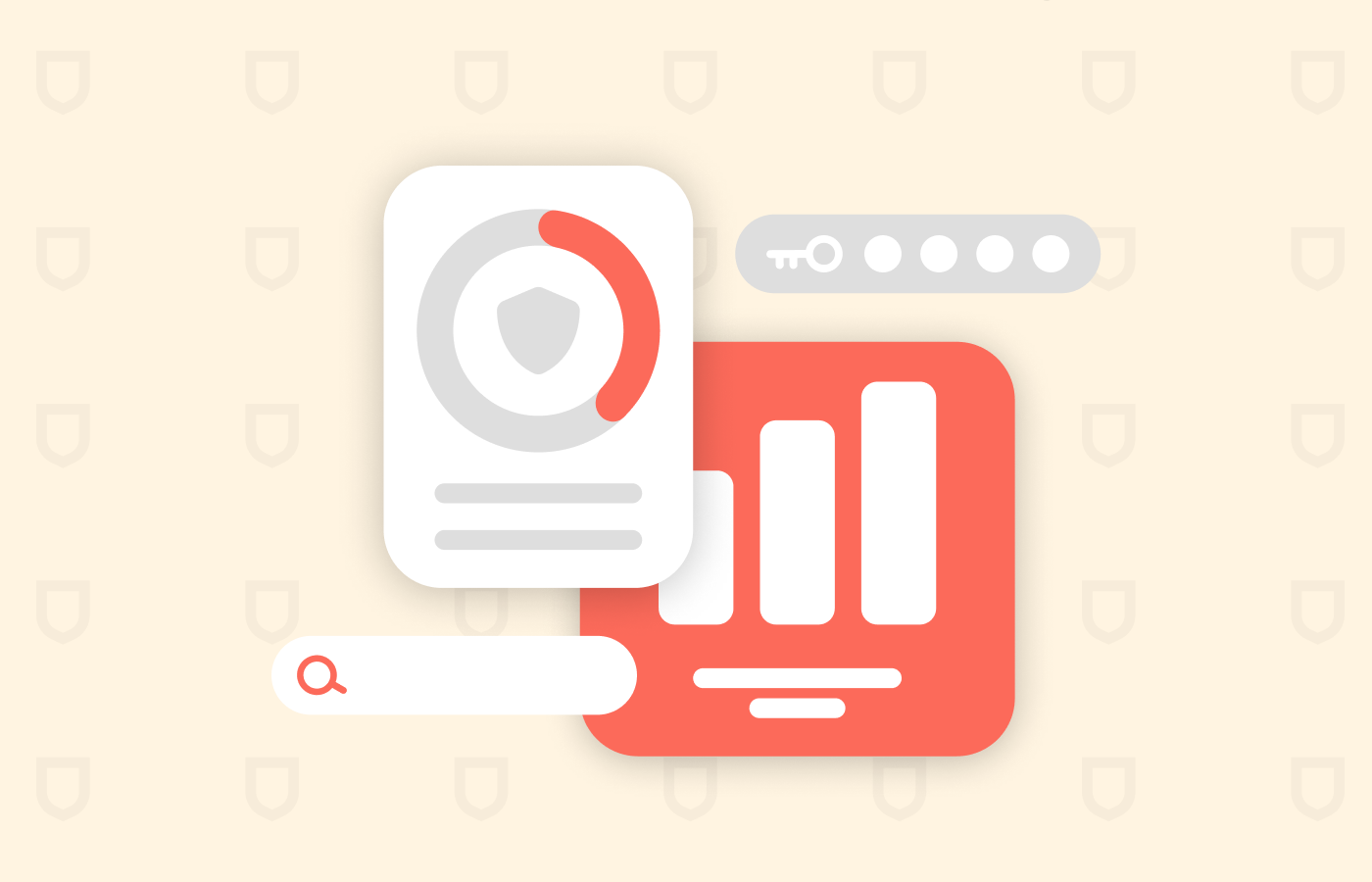VPNs are the preferred tools for hiding the original IP address from prying eyes. However, despite having an active VPN connection, sometimes your real IP gets unveiled, exposing your location, browsing history, and other important data. This phenomenon, called “IP leak” or “VPN leak,” nullifies the purpose of using a VPN. It may happen due to a fault in your chosen VPN service or a sudden connection drop.
In this guide, we will examine the common VPN glitches that cause IP leaks and effective workarounds to protect against them.
What is an IP leak or VPN leak?
An IP leak, also sometimes called a VPN leak, is just what the word says – leakage of your real IP address by your VPN.
IP leak happens due to multiple reasons. Sometimes, your device’s browser extensions or other installed software cause IP leaks. In other instances, brief disconnection moments in your VPN connection can leak your actual IP address online. (We’ll discuss how it all happens in the following sections.)
So, what happens is that despite an apparent active connection to a VPN server, your real IP address (the one provided by your ISP), your location, time zone, and other actual details are exposed online.
Consequently, from websites to web trackers to cyber-criminals, anyone can track your real details and chase you.
Thus, while you happily use a VPN to protect your privacy, you face troubles while surfing.
For instance, you want to visit a website, but it fails to load, clearly mentioning that the service isn’t allowed in your area. You wonder how you came to the website and guessed your correct location.
It’s because your VPN leaks your IP address and location online.
Why should you care about IP leaks?
IP leaks through your VPN are critical and should be taken care of. Precisely, this single behavior fails the sole purpose of using a VPN.
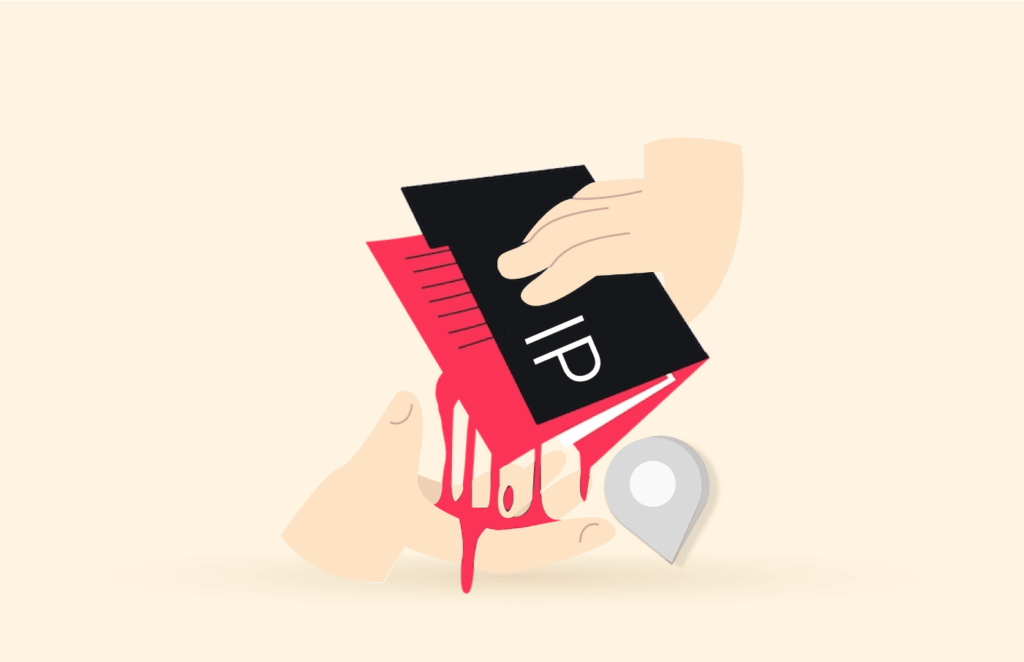
Still, for clarity, below, we explicitly mention the key reason why an IP leak demands your attention.
Privacy breach
At first, leakage of your real IP address online is a blatant breach of your privacy.
While you’re trying to hide your actual details from the online world, a mere leakage of your IP address exposes everything about you to everyone online, be it the government, surveillance authorities, or criminal hackers.
Inability to bypass content restrictions
A VPN lets you change your online location with a virtual IP address that masks your real one. However, your real IP leak exposes your actual location online. Thus, you cannot access content otherwise prohibited in your area (a scenario similar to when you do not use a VPN).
No blocking to ISP tracking
IP leaks also lead to VPN detection by your ISP.
Thus, you are not only exposed to ISP tracking and subsequent surveillance. Instead, it also risks your physical security, especially if using a VPN isn’t allowed in your area.
How a VPN leaks IP address
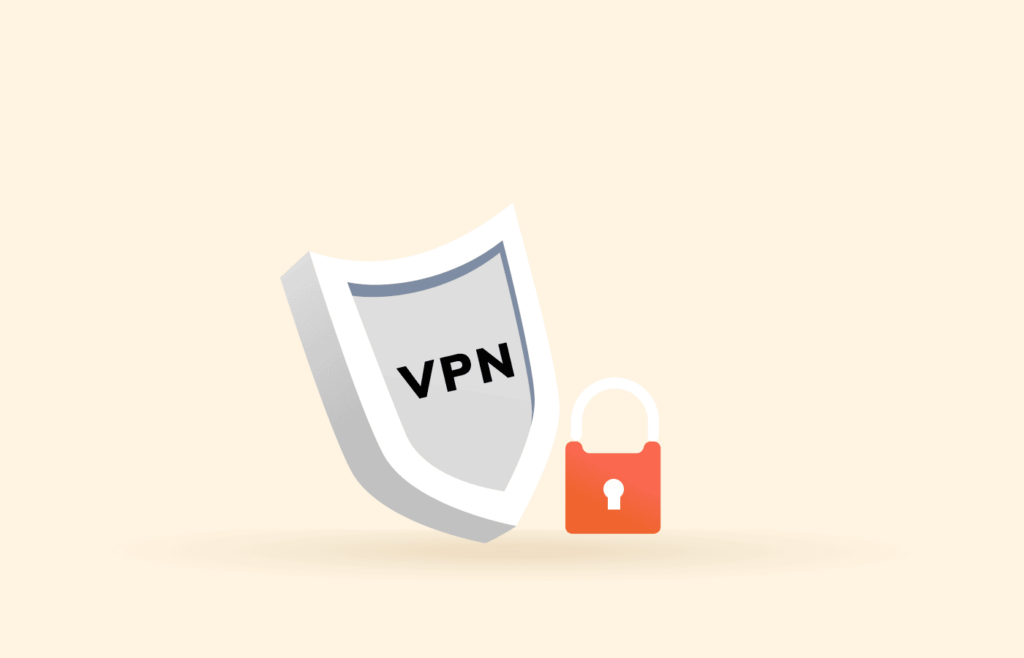
Whether the fault lies in your VPN client or some other service, most IP leaks happen through one or more of the following ways:
IPv6 leak
Typically, an IP leak by a VPN refers to the online exposure of either of the two IP addresses – Ipv4 and IPv6.
For those who don’t know about these IP addresses, let us quickly review these two.
IPv4 address is the typical numerical identifier assigned to a device by an ISP. It belongs to the 32-bit internet address standard that is presently in use.
Whereas, the IPv6 address belongs to the new 128-bit address standard with far more numerical combinations. Hence, it will take over after IPv4 addresses exhaust.
While most websites have adopted IPv6 support, the ISPs haven’t. That’s why websites have a dual-tiered approach to support both IPv4 and IPv6 connections.
IPv4 leak
IPv4 leak isn’t common for a VPN. This type of leak means that the VPN has entirely failed to protect your IP address.
So, if it happens, you should either connect with a different server or consider switching your VPN service.
IPv6 leak
This is a relatively predictable error that occurs since most VPNs do not recognize IPv6. Hence, while they mask IPv4, they fail to detect an IPv6 address.
Thus, the websites supporting IPv6 connections can still track you via IPv6 even if they don’t see your IPv4.
DNS leak
Another common issue that leaks IP addresses online is the Domain Name System (DNS). Although most VPNs handle DNS queries through their own servers. That’s why these leaks are not so frequent today.
However, a DNS leak may still happen because many operating systems continue to route DNS queries through the default DNS server, which would probably belong to your ISP.
Hence, this arising conflict between your online IP address (given by your VPN) and the DNS server is what causes VPN detection. Anyone can then trace you down to the level of your IP address.
WebRTC leak
Today, WebRTC is the main cause of the failure of your VPN to protect your IP address. It’s because of WebRTC that anyone can detect your real location from websites to ISP.
The reason why the WebRTC leak remains viable today is that it isn’t a VPN issue. Nor does it lie with the operating system.
Then what is WebRTC, you might ask? WebRTC is primarily a browser feature responsible for audio and video communication. This feature broadcasts your real IP addresses to STUN servers that log both public and real IP addresses.
And that’s how the leak happens. Since it’s a browser issue, most VPNs cannot prevent WebRTC leaks. Only the best VPNs from reputable firms can handle this problem as they take over WebRTC.
Connection drops
This is another major cause of IP leaks via VPNs. VPN disconnections can still ruin your efforts even if you’re an IP geek and have employed everything to prevent IP exposure online.
Like every other service, VPN clients are always vulnerable to connection dropouts.
Of course, when they’re connecting your device to a faraway server, they are likely to face trouble due to poor internet connection at your end or some other technical issue at the VPN’s end. So, such dropouts aren’t a big deal.
But the spontaneous exposure of your IP address creates trouble for the user. Even if the connection drops for a second, the data generated from your device during this period transmits with all your real information, that is, your real IP address, actual location, etc.
This brief period is enough for the sniffers, web trackers, websites, your ISP, and all other entities to sniff your data and know your real details.
After that, when your VPN reconnects, your anonymous status no more prevails since those specific data packets with your real details are enough for anyone to track you.
It means all your efforts to stay anonymous online go in vain with just one glitch.
This situation can be specifically horrifying for VPN users in regions where VPNs are banned. Or, for the users who were in the middle of downloading a torrent.
How to detect what leaks affect my VPN?
If you doubt your VPN is leaking your IP address, then you can test your VPN to detect the underlying issue.
While an IP leak is rare, DNS and WebRTC leaks are quite common. So, if you face trouble accessing restricted websites, then you need to perform the following tests.
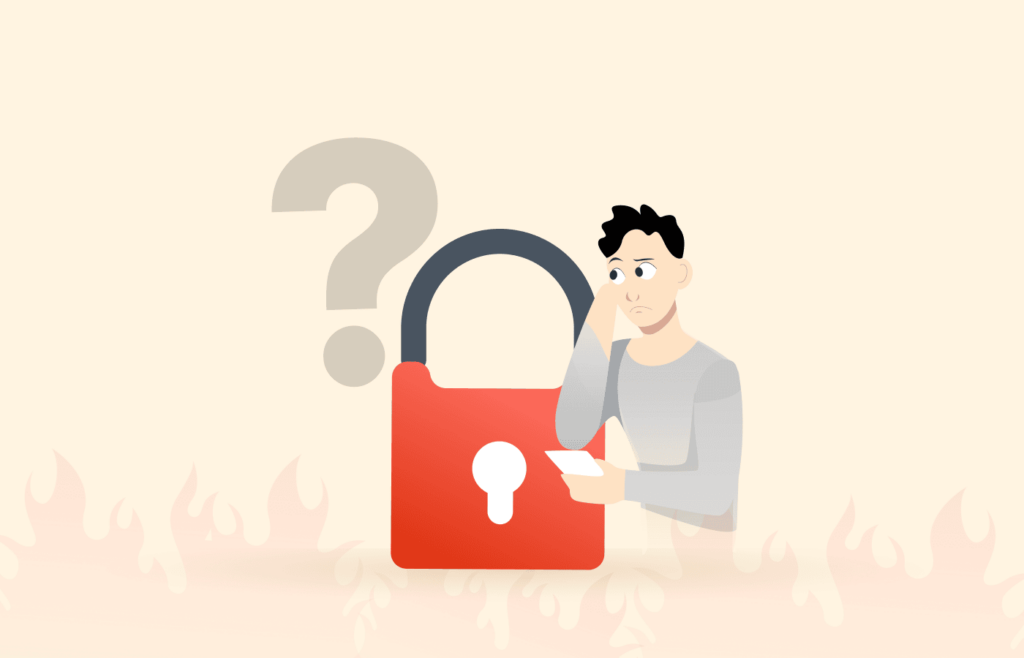
IP and DNS leak test
The first thing to do while assessing your VPN is to test the IP address and DNS leak. Most VPN leak tests give you a report for both parameters together. So you can have a good idea about how efficient your VPN is in protecting you.
For this, you can simply visit the websites for such online testing tools, such as https://ipleak.org/, https://ipleak.com/, https://ipleak.net/, and https://browserleaks.com/ip.
Or, you can perform individual tests, such as https://www.dnsleaktest.com/, which gives you the results regarding DNS leaks.
These tools assess your public IP address and try to grab other system information through your IP. Hence, the details they display are enough to know what information of yours is available online despite using a VPN.
In most cases, the amount of information displayed will surely surprise you as it will not only include your IP address. Instead, it will also reveal details about your device, operating system, browser version in use, other browsers, time zone, location, and more.
So, you see, this single leak of IP addresses can occur through various spots. And this is how websites, ISPs, and other entities such as Five Eyes monitor your online activities.
WebRTC leak test
Even if your VPN passes IP leak and DNS leak tests, it will most certainly fail here.
WebRTC leak, as we stated above, is something related to your browser and not your VPN. That’s why your VPN won’t control any leaks occurring through your browser.
To know whether you’re using a leaky or safe browser, you can perform WebRTC tests by visiting relevant websites. Some of these (the tested resources) include https://browserleaks.com/webrtc, https://www.hidemyass.com/en-us/webrtc-leak-test, https://whatismyipaddress.com/webrtc-test, https://hide.me/en/webrtc-leak-test, and https://ip8.com/webrtc-test.
After visiting these websites, if you see your real IP address and location visible, despite using a VPN, then it shows you are not anonymous online.
In such a case, you need to fix the leak by following the solutions we explain below.
IP leak protection: How to fix VPN IP leak problems?
Now that you know what things expose your IP address online, even with a VPN; let’s look at how to fix these problems.
Below we explain all the solutions concerning individual IP leak issues.
Perhaps, if you are an IP leak victim, then, by now, you would have figured out what exactly the issue is exposing your IP.
So, you can either jump on to the section with the solution to your problem. Or, you can read all the fixes to learn how to fix an IP leak anytime.
Ways to fix IPv6 leak
Are you wondering why did we omit IPv4 leak protection? Well, as we already mentioned, this error isn’t so common. And if it happens, it typically hints at poor VPN service.
So, if you experience an IPv4 leak, you have just one viable solution – switch your VPN service. ExpressVPN and NordVPN are two VPNs that we can recommend here.
To protect yourself from an IPv6 leak, try the following two solutions.
1. Manually disable IPv6:
The first thing you can do is disable IPv6 on your device entirely. This will ensure thorough IP leak protection for any IPv6 exposures.
To do so, you can simply go to your device network settings and locate IPv6.
If you’re a Windows user, uncheck the IPv6 option in the Network Properties.
For macOS users, go to the WiFi settings and click on the ‘TCP/IP/‘ tab, below which you’ll find the option ‘Configure IPv6.’ Simply toggle it Off.
2. Use VPN that prevents IPv6 leak
This one is a hassle-free method for all non-technical users who do not want to meddle with their device’s network settings.
So, what you should do is subscribe to a VPN that offers IPv6 leak protection. Both the VPNs, ExpressVPN and NordVPN, mentioned above will do the job here.
Such VPNs recognize IPv6 connections and route them through their servers. So, you don’t have to do anything on your device to hide IPv6.
If you cannot switch your VPN, you can use third-party apps blocking IPv6 leaks. For example, you can download the OpenVPN app according to your device.
Ways to fix DNS leak
Although, disabling IPv6 offers partial protection against DNS leaks as well.
However, the chances of IPv4 DNS leaks are still there. So, you can try the following methods to block DNS leaks.
1. Change DNS settings manually
The first thing you can do to prevent your ISP and all others from tracking you via DNS leaks is to change your DNS settings.
Precisely, in your device’s network settings, you’ll find an IPv4 DNS server address, and in some cases, an IPv6 DNS address. These addresses automatically come from your ISP and persist even when you use a VPN.
Windows users may also find two options for IPv4 DNS, a preferred DNS server and an alternate DNS server. You need to change both on your Windows PC.
However, changing DNS settings may still not provide thorough protection, as the ISP can still track you even when it’s not handling DNS requests.
So, you may also use DNS encryption techniques that block your ISP from such tracking. These include DNS over HTTPS (DoH) and DNS over TLS (DoT).
Users may also adjust these settings in their browsers to stay protected.
Here’s how to do it in Mozilla Firefox:
Settings (three bars on the top right of your browser) > Options > General > Network Settings (Click on the Settings button) > Enable DNS over HTTPS. You can then choose a service as your DNS.
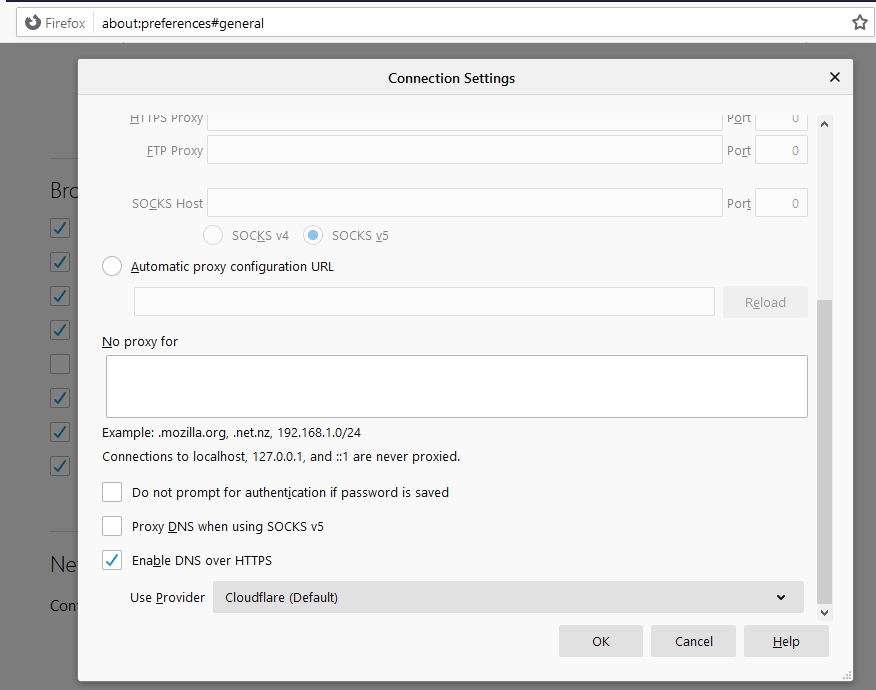
Whereas Google Chrome users can follow this path:
Settings (three vertical dots on the top right of your browser) > Settings > Privacy and Security > Security > Use Secure DNS (scroll down to see this option in the ‘Advanced‘ section) > Check ‘With‘ and choose your desired DNS service.
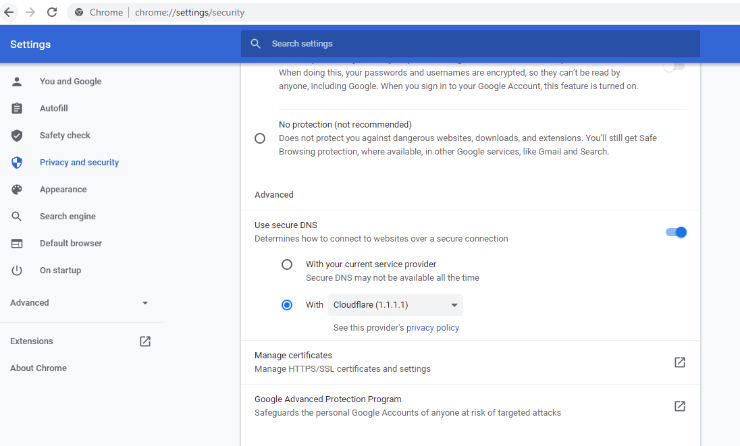
Microsoft Edge also offers similar protection settings to its users. However, the settings are not publicly visible in the settings menu.
So, you need to visit browser flags to enable secure DNS. Simply type “edge://flags/#dns-over-https” and press ‘Enter.’ You’ll then see the following screen. Choose ‘Enable‘ from the dropdown menu.
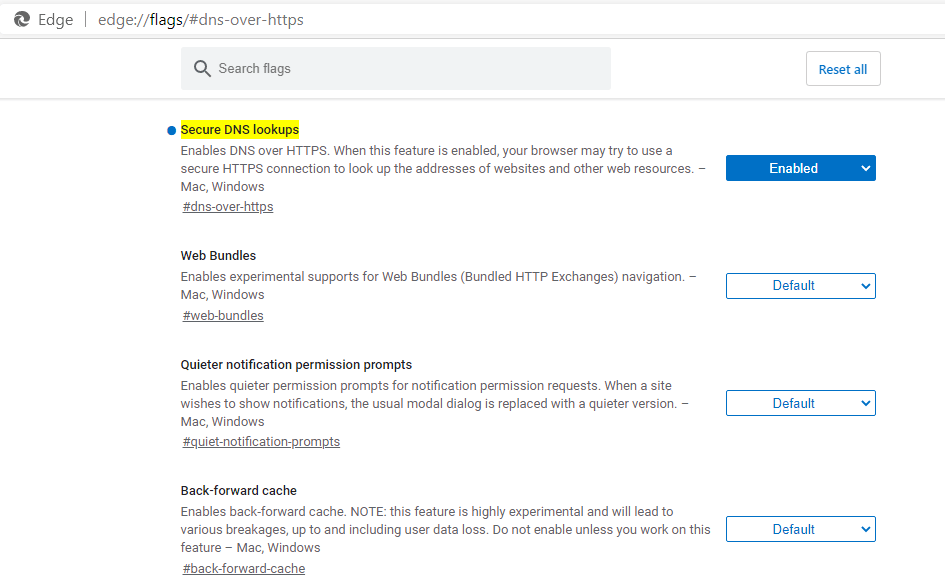
Your browser is now ready to encrypt your DNS data. You can now adjust your Windows network settings to set up a DNS server and enjoy DoH.
2. Use VPN with DNS leak protection
A second way to prevent DNS leaks without meddling with network and browser settings is to use a VPN that offers DNS leak protection.
Simply look for a VPN service that provides this feature, and once installed, make sure to enable this feature. (Unfortunately, despite offering DNS leak protection, many good VPNs have it disabled by default. So, you need to activate it manually).
Once done, all your DNS requests will proceed through the encrypted VPN tunnel.
Also, the OpenVPN app comes in handy here if you cannot switch your existing VPN client.
Ways to fix WebRTC leak
Although WebRTC is one of the most common sources of IP leaks. Yet, you can still try the following to ensure IP leak protection.
1. Manually disable WebRTC
Although WebRTC is a critical feature for adequate audio/video communication. However, if you aren’t concerned much with such communication, you can simply disable this feature for thorough protection instead of worrying about your privacy.
You may not find an easy option to disable this feature in your browser. Perhaps, you may need to visit the ‘flags,’ in the case of Google Chrome and Microsoft Edge or the ‘about:config,’ in the case of Mozilla Firefox and lookup for WebRTC settings.
However, as an easy alternative, you can simply download appropriate browser plugins that disable WebRTC.
2. Use VPN with WebRTC leak protection
Many VPN providers also offer dedicated browser extensions that disable WebRTC leaks.
Whereas, for VPN clients, you can choose WebRTC leak protection services. These VPN services have special firewall settings to prevent WebRTC leaks.
However, in the latter case, the chances of browser leaks still persist through other means. Hence, we still recommend disabling WebRTC in the browser even if you’re using a good VPN like ExpressVPN (our top recommendation for this).
Ways to fix IP leak due to VPN disconnection
The last source exposing your anonymity online for which you need IP leak protection is connection dropouts.
For this, you need to switch your VPN client and choose a service that offers ‘Kill Switch.’ (Both of the VPNs, ExpressVPN and NordVPN, we recommended above boast a kill switch feature.)
As we stated above, VPN disconnections let your ISP take over your internet connection, exposing your real details.
So, VPNs with Kill Switch prevent such leaks as they break your internet connection in case of service disconnection. In simple words, your internet will only work when the VPN connection is active.
Hence, this feature ensures that when your VPN re-establishes its connection, you remain anonymous.
Bonus tip: Use secure browsers
Regardless of your VPN client, your online privacy remains vulnerable if your browser is leaky. It means you must go through the hassle of manual browser adjustments to prevent various leak sources.
However, if you change your default browser to a secure one, you do not have to worry about IP leak protection.
Secure browsers, such as Tor, Tenta, and more, usually have built-in features that protect your privacy, such as a built-in VPN, malware protection, and more.
